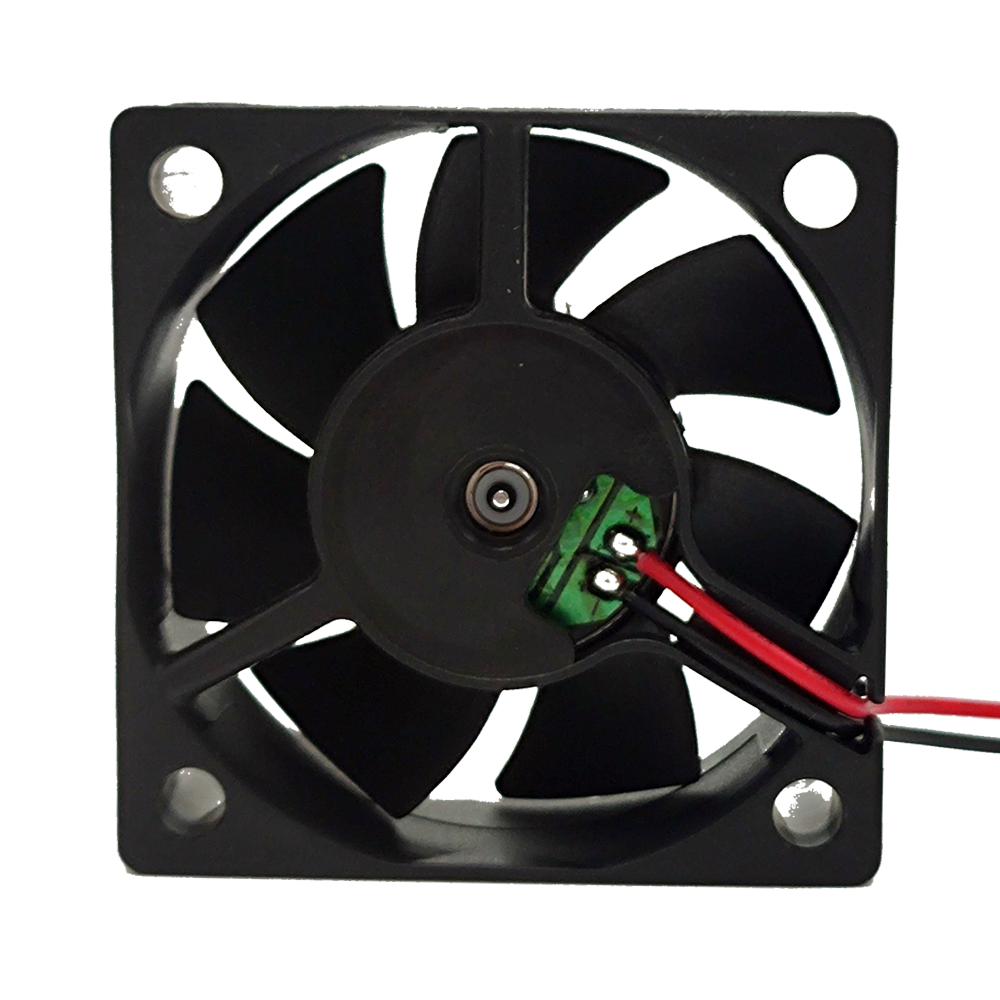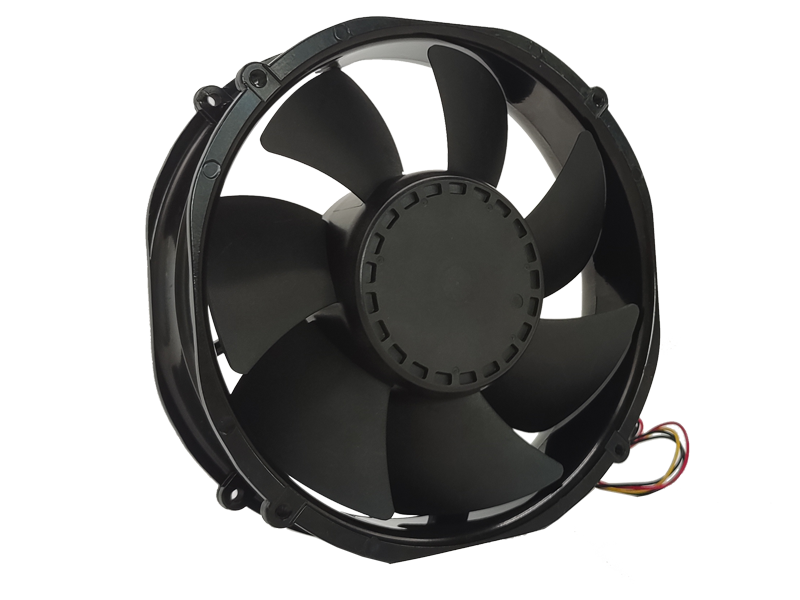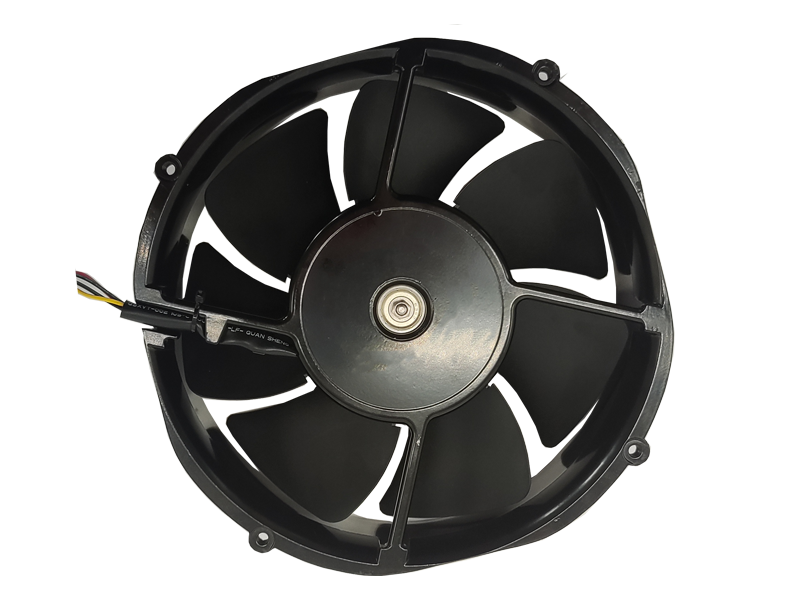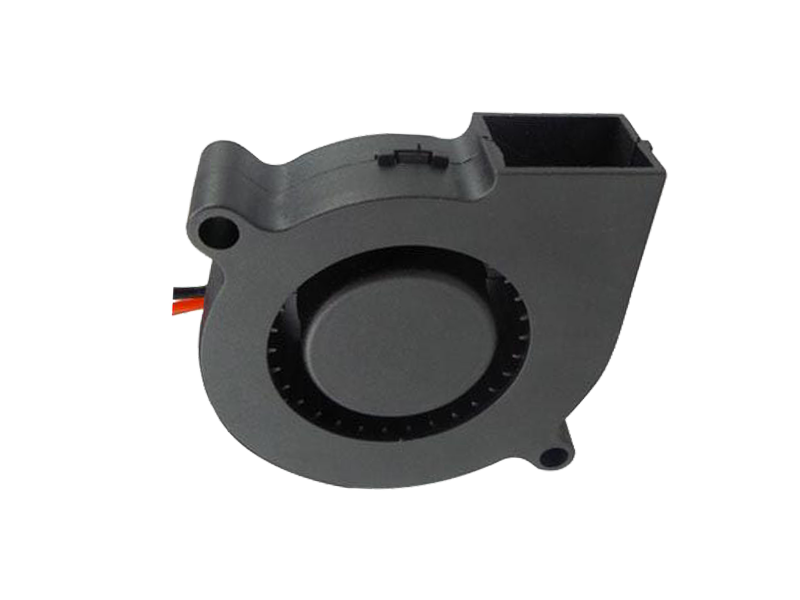Industrial fans are often seen as secondary components in industrial facilities, yet their role in enhancing process efficiency, maintaining operational reliability, and ensuring worker comfort cannot be overstated. These robust devices serve to regulate air movement, remove pollutants, control temperature, and support various production processes. In this article, we examine the multifaceted role of industrial fans in improving both industrial operations and the working environment.
1. Optimizing Industrial Processes with Industrial Fans
Every industrial process has unique requirements for airflow, temperature, and humidity control. Industrial fans, whether used for cooling, ventilation, or exhaust, are critical for ensuring these processes run efficiently and within desired parameters.
Temperature and Humidity Control
In industries like food processing, pharmaceuticals, and electronics manufacturing, maintaining precise temperature and humidity levels is essential for product quality and process efficiency. For instance, in the food industry, controlling temperature can prevent the growth of bacteria or the spoilage of products. Industrial fans are integral to regulating air movement, which aids in achieving these precise conditions.
In semiconductor manufacturing, where even small temperature fluctuations can lead to defects in products, industrial fans provide the cooling and ventilation necessary to keep production lines at stable temperatures, ensuring a high-quality output.
Ventilation and Airflow Management
Effective ventilation is vital in ensuring that industrial spaces have adequate airflow. Stagnant air in enclosed environments can lead to the buildup of toxic gases, airborne particles, and heat. This is especially true in industries such as mining, construction, and chemical manufacturing, where the release of fumes, dust, and gases is common.
Industrial fans help prevent these issues by ensuring that air is constantly circulated, removing hazardous gases and particles, and improving the quality of air within a facility. This is critical not only for regulatory compliance but also for the safety and health of workers.

Exhaust Systems for Pollutant Removal
In many industrial applications, especially in chemical processing and manufacturing, pollutants are generated that must be safely removed to maintain a healthy environment. Industrial exhaust fans are used to expel hazardous fumes and particles from the workplace, keeping air quality within safe limits. This is particularly important in facilities where chemicals, solvents, or welding gases are used. Efficient exhaust systems help meet environmental regulations and prevent the buildup of dangerous fumes that could otherwise compromise both the product and worker safety.
2. Industrial Fans and Worker Comfort
Maintaining a comfortable working environment is essential for worker productivity and health. In many industrial settings, workers are exposed to extreme temperatures or poor air quality, which can lead to fatigue, discomfort, or even heat stress. Industrial fans help mitigate these issues by providing cooling, ventilation, and improving air circulation.
Cooling in Hot Environments
In industries where workers are exposed to high temperatures, such as metalworking, welding, or foundries, industrial fans are critical in providing cooling. High-performance cooling fans can lower the ambient temperature around workers, preventing heat-related illnesses and ensuring that they can continue working effectively. Fans designed with higher airflow capabilities are used in spaces like smelting factories or glass production plants to reduce the heat intensity around employees.
Ventilation for Worker Health
Ensuring the health and well-being of workers is a primary concern for employers. Poor air quality can lead to respiratory issues, fatigue, and even chronic conditions. By circulating fresh air and expelling contaminants, industrial fans help ensure that the working environment remains safe and healthy. In dusty environments such as wood processing or textile manufacturing, ventilation is crucial to prevent respiratory diseases. The removal of particulate matter ensures cleaner air, which can improve the overall health of workers.
Improving Workplace Morale and Productivity
Studies have shown that maintaining a comfortable working environment can significantly boost morale and productivity. Workers in well-ventilated, temperature-controlled spaces are more likely to stay alert and perform at their best. By keeping temperature and humidity within optimal levels, industrial fans help create an environment conducive to high performance.
3. Technological Innovations in Industrial Fans
As industries continue to evolve, so do the technologies behind industrial fans. Manufacturers have integrated new technologies that enhance fan performance, reduce energy consumption, and provide more advanced features for specialized industrial applications.
Energy Efficiency and Environmental Impact
Energy efficiency is a significant concern in modern industrial settings, and fans are no exception. Today’s industrial fans are designed with energy-efficient motors, aerodynamic blades, and the option for variable-speed control. This allows businesses to reduce energy consumption and lower their carbon footprint, while maintaining high airflow and performance. Variable-speed fans, in particular, can adjust their speed based on real-time needs, ensuring that they only consume power when necessary.
Noise Reduction Technology
Noise pollution in industrial settings can have detrimental effects on workers' health and safety. The introduction of noise-reducing technologies, such as low-noise motors, vibration dampening, and advanced blade designs, has made industrial fans quieter and less intrusive. These innovations contribute to a more comfortable work environment and help facilities comply with noise regulations.
Smart Controls and Automation
With the advent of Industry 4.0 and the Internet of Things (IoT), industrial fans are increasingly becoming part of a larger network of interconnected systems. Smart fans with automated controls can adjust airflow based on environmental conditions such as temperature, humidity, or pollutant levels. By integrating industrial fans into automated systems, businesses can achieve greater precision, efficiency, and responsiveness in their operations.
Conclusion
Industrial fans are an indispensable part of the industrial landscape. From cooling and ventilation to exhaust and air quality control, these fans contribute significantly to the efficiency, safety, and well-being of both operations and workers. As technology continues to evolve, industrial fans will become even more energy-efficient, quieter, and smarter, providing industries with solutions that not only improve productivity but also foster a healthier and more sustainable work environment.
Recommended Products

The main purpose:Car charging station

The main purpose:Car charging station

The main purpose:Electronic refrigerators, water dispensers, direct drinking machines, inverter power supplies
Address:No. 4137, Longgang Avenue (Henggang Section), Henggang Community, Henggang Street, Longgang District, Shenzhen
hotline:13530005572(Chen)15112579390(Li)


Welcome all friends to come for consultation and negotiation.
Copyright 2024 @ Shenzhen Youneng Xinyuan Electronics Co., Ltd.,(industrial fans,industrial blowers,axial fans,cooling fans manufacturer,centrifugal fans,ac cooling fans,dc cooling fans)